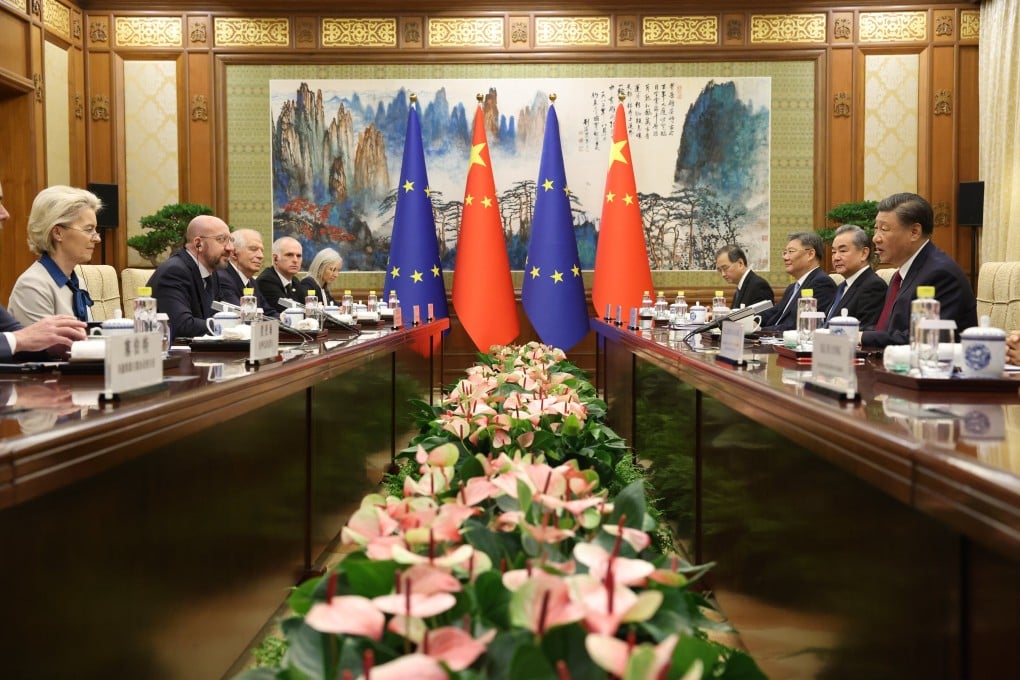EU-China summit: Brussels ratchets up pressure on Beijing over trade and Russia’s war on Ukraine
- Brussels confronts Beijing with details of Chinese companies selling European-made, dual-use products to Moscow
- Ursula von der Leyen calls on China to use ‘all of its influence on Russia to stop this war of aggression’

The European Union pushed China’s leadership to stop its firms from selling sanctioned goods to the Russian military on Thursday, a key demand made during the first in-person meeting between the two sides in four years.
Brussels officials confronted their counterparts with details of Chinese companies who are selling European-made, dual-use products – those with commercial and military applications – to Moscow, thereby circumventing sweeping sanctions designed to hobble Russia’s war effort in Ukraine.
European Council President Charles Michel, European Commission President Ursula von der Leyen and other EU leaders used rare face-time with Chinese President Xi Jinping and Premier Li Qiang to force the issue, with a veiled warning that its members will not look favourably on a failure to act.
“We have identified a list of companies which are suspected to play a role in circumventing sanctions and we had the occasion to make clear both in preparation for this summit but also during the summit,” said Michel.
“We hope today we are heard and then the appropriate action will be taken by China,” Michel said at a press conference in Beijing, adding that “member states will have to decide what further action will be done”.
These sales to Russia were among a series of thorny issues covered during a day of talks that ran the full gambit of EU-China relations. As has become customary, Michel and von der Leyen pressed their hosts to do more to help end the war in Ukraine.
